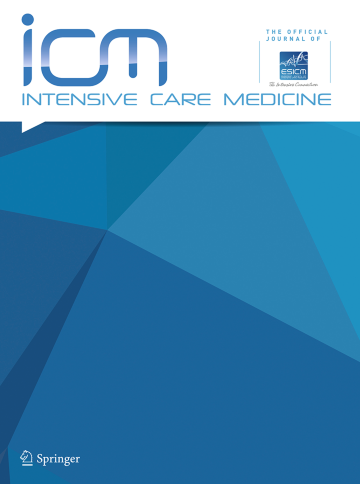Short- and long-term outcomes and 15-year time trends of kidney replacement therapy in critically ill patients with obesity: an observational cohort.
IF 21.2
1区 医学
Q1 CRITICAL CARE MEDICINE
引用次数: 0
Abstract
PURPOSE Obesity is a public health challenge and a risk factor for chronic and acute kidney injury (AKI). The impact of kidney replacement therapy (KRT) on mortality in this specific population remains unclear. The objectives of this study were to evaluate the association between KRT and short- and long-term outcomes in patients with obesity, and to analyze trends over time in mortality as well as AKI and KRT incidence. METHODS A retrospective analysis was conducted on all consecutive patients with obesity (body mass index ≥ 30 kg/m2) admitted to a medico-surgical intensive care unit from 2009 to 2024. AKI was defined using KDIGO criteria. The primary outcome was 90-day mortality assessed with Kaplan-Meier curves and multivariate Cox analysis. Secondary outcomes included 1-year mortality and time trends assessed on 90-day mortality, AKI, and KRT incidence, as well as SAPS II score. RESULTS Among 2,192 patients with obesity included in the study, 295 (13.5%) required KRT. The 90-day mortality was significantly higher in the KRT group compared to the non-KRT group (49.8% (95% CI [44.1-55.5] vs. 18.9% (95% CI [17.2-20.7]), p < 0.0001). Multivariate analysis confirmed that KRT was independently associated with increased mortality. Over the 15-year period, AKI incidence decreased (p < 0.001). CONCLUSION Among critically ill obese patients, KRT was independently associated with increased 90-day mortality. These results highlight the need for prospective studies to better define optimal management strategies in this high-risk population.肥胖症危重患者肾脏替代治疗的短期和长期结果及15年时间趋势:一项观察性队列研究
肥胖是一项公共卫生挑战,也是慢性和急性肾损伤(AKI)的危险因素。肾脏替代疗法(KRT)对这一特定人群死亡率的影响尚不清楚。本研究的目的是评估肥胖患者KRT与短期和长期预后之间的关系,并分析死亡率、AKI和KRT发生率随时间的趋势。方法回顾性分析2009 - 2024年在某内科外科重症监护病房连续收治的所有肥胖(体重指数≥30 kg/m2)患者。AKI的定义采用KDIGO标准。主要终点是用Kaplan-Meier曲线和多变量Cox分析评估90天死亡率。次要结局包括1年死亡率和以90天死亡率、AKI和KRT发生率以及SAPS II评分评估的时间趋势。结果在纳入研究的2192例肥胖患者中,295例(13.5%)需要KRT。KRT组90天死亡率显著高于非KRT组(49.8% (95% CI[44.1-55.5]对18.9% (95% CI [17.2-20.7]), p < 0.0001)。多变量分析证实KRT与死亡率增加独立相关。在15年期间,AKI发病率下降(p < 0.001)。结论在肥胖危重患者中,KRT与90天死亡率升高独立相关。这些结果强调了前瞻性研究的必要性,以更好地确定高危人群的最佳管理策略。
本文章由计算机程序翻译,如有差异,请以英文原文为准。
求助全文
约1分钟内获得全文
求助全文
来源期刊

Intensive Care Medicine
医学-危重病医学
CiteScore
51.50
自引率
2.80%
发文量
326
审稿时长
1 months
期刊介绍:
Intensive Care Medicine is the premier publication platform fostering the communication and exchange of cutting-edge research and ideas within the field of intensive care medicine on a comprehensive scale. Catering to professionals involved in intensive medical care, including intensivists, medical specialists, nurses, and other healthcare professionals, ICM stands as the official journal of The European Society of Intensive Care Medicine. ICM is dedicated to advancing the understanding and practice of intensive care medicine among professionals in Europe and beyond. The journal provides a robust platform for disseminating current research findings and innovative ideas in intensive care medicine. Content published in Intensive Care Medicine encompasses a wide range, including review articles, original research papers, letters, reviews, debates, and more.
 求助内容:
求助内容: 应助结果提醒方式:
应助结果提醒方式:


